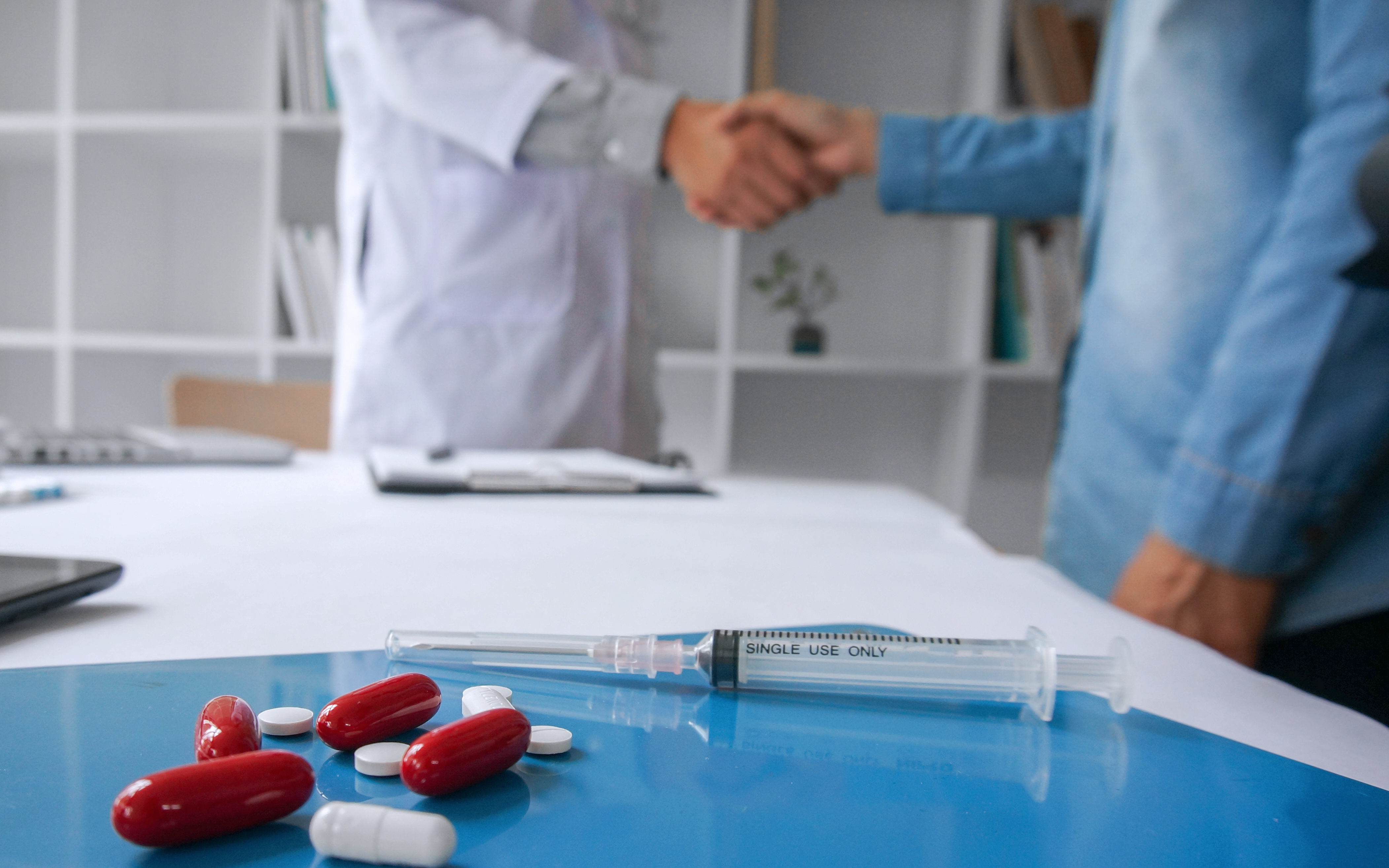Why are drugs still sold long after the trials show they are ineffective or dangerous?
By Chris Wheal
June 20, 2024

Are pharma companies abusing weak medicines regulation in Europe?
Research cooperative Investigate Europe has run a fine-toothed comb through the European Medicines Agency (EMA) and it’s not a great look for the regulator.
But the way certain pharmaceutical firms are circumventing proper scrutiny of their new medicines makes for uncomfortable reading. That they continue to sell drugs even after trials prove them ineffective or – worse – dangerous, beggars belief.
Who regulates the regulator?
The article Big pharma influence hangs over Europe’s medicines regulator has a lot of detail. EMA looks compromised. There has been a revolving door between EMA staff and lobbyists and consultants who help get medicines approved. Pharma firms have been able to nominate their favoured ‘independent’ experts to decision-making panels.
But the report also covers a fast-track approval mechanism widely used to get early approval for some medicines. It’s called conditional marketing authorisation (CMA).
Let’s be clear: fast approval for urgently required medicines, such as for Covid, is a good thing. But it has been open to abuse.
Conditional marketing authorisation
Several problems are reported. The CMA process has let drugs through without an antidote to serious side-effects. In other cases, many years after CMA has been given, some drug companies are failing to provide the necessary clinical trial evidence to continue the approval.
Investigate Europe reported examples where companies report elsewhere in the world that its trials have shown a drug was ineffective but the same drug remains promoted in Europe under licence to another company.
Worse still, even after US regulator the Food and Drug Administration (FDA) has withdrawn approval for drugs that have turned out to be dangerous, they remain approved in Europe.
All of this suggests that pharma companies knowingly continue to sell ineffective or dangerous drugs throughout Europe. That’s just not good enough.
Ethical approach
Because the regulator is still officially approving the drugs, selling them is not a crime. But that’s no argument. Doing the minimum required is never enough.
It’s two-faced to have environmental, social and governance policies if you’re unethically selling ineffective or dangerous products. Claims about greening your supply chain and cutting emissions, or having the most progressive human resources and diverse workforce, are worthless if you’re knowingly selling duff products.
It's not about rights; it’s about responsibility. You might have the legal right to sell a product but if you know it doesn’t work, you have a responsibility not to sell it.
It’s not what you can get away with, but what you can get right.
Should pharma firms behave ethically?
Note: PharmaLifeScience contacted the EMA and some of the drug companies mentioned in the Investigate Europe report. None had published statements correcting or denying the allegations. None replied to our direct requests for comment. We have to assume the allegations made in the report are true.







.png)